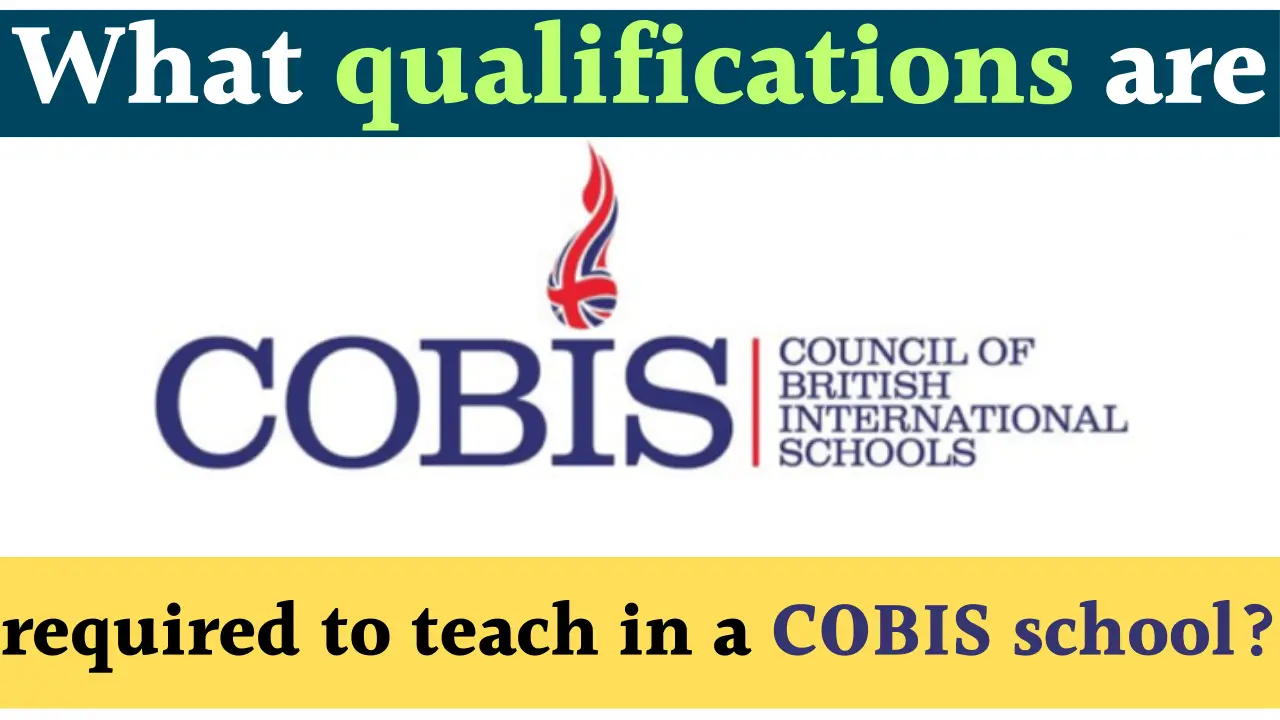Teaching in a COBIS (Council of British International Schools) school requires a blend of formal qualifications, professional experience, and sometimes additional training aligned with international standards. COBIS-affiliated schools emphasize a British-style education overseas, so the qualifications mirror those expected in UK-based schools, with added focus on international training opportunities and professional development.
Core Teaching Qualifications
To teach in a COBIS school, the fundamental qualifications generally include:
- A recognized teaching qualification: This may be a UK Qualified Teacher Status (QTS), a Postgraduate Certificate in Education (PGCE), or an international equivalent such as the International PGCE (iPGCE).
- A bachelor’s degree (first degree) from a recognized university, either UK-based or international, validated as equivalent to UK standards.
- Subject-specific qualifications for certain teaching roles (for example, for primary school science, having a qualification equivalent to GCSE grade 4-level physics, chemistry, or biology are expected).
- English and mathematics qualifications at least equivalent to GCSE grade 4.
Many COBIS schools prefer candidates who hold teaching certifications from recognized British institutions or who have completed programs endorsed by COBIS such as international iPGCE or iQTS programs offered through partnered providers (e.g., UWE Bristol, University of Sunderland, Coventry University).
Experience Requirements
Experience is a vital component in securing a teaching role in a COBIS school:
- A minimum of two years of successful classroom teaching experience is typically required.
- Experience should ideally be gained in at least two different schools to demonstrate adaptability and an understanding of various teaching environments.
- Teaching experience can be in British international schools, state schools, or other international curriculums like the IB offering.
- Candidates should have experience teaching students from diverse cultural and educational backgrounds.
- Familiarity with British curriculum teaching and assessment approaches is highly valued.
For those without formal teacher training but considerable experience, the Assessment Only Route to QTS is available and recognized, allowing experienced teachers to gain qualification based on their teaching evidence and standards met in their work.
COBIS Specific Teacher Training and Development
COBIS encourages schools to support teacher supply and retention through initial teacher training (ITT) and professional development. This is done via:
- COBIS Training Schools initiative that marks schools committed to professional learning and Initial Teacher Training.
- Partnerships with UK universities and training providers to offer international PGCEs and international Qualified Teacher Status (iQTS).
- Continuous professional learning networks, CPD events, and early career teacher programs.
- Special qualifications for teaching assistants and early years practitioners such as the Diploma for International Teaching Assistants (DITA) and the Diploma for International Lead Teaching Assistants (DILTA).
COBIS Training Schools serve as regional hubs for teacher development, hosting professional events, offering ITT placements, and promoting career progression in teaching.
Summary Table: Minimum Qualifications to Teach in a COBIS School
| Qualification / Requirement | Details |
|---|---|
| Bachelor’s Degree | Recognized UK or equivalent international degree |
| Teaching Qualification | QTS, PGCE, iPGCE, iQTS, or equivalent |
| Experience | Minimum 2 years teaching; experience in 2 different schools |
| English & Maths Qualifications | GCSE grade 4 equivalent or higher |
| Subject Specific Qualifications | Required for primary science/other specialized subjects |
| Additional Training (Optional but valued) | COBIS-affiliated ITT programs and continuous CPD |
| Experience with British Curriculum | Preferred for understanding of standards and assessments |
| Assessment Only Route (if relevant) | For experienced teachers without formal training |
Latest Updates and Recommendations for COBIS Teaching Applicants
- COBIS promotes international initial teacher training routes, with preferential rates for COBIS member schools and candidates.
- Experienced teachers can opt for the Assessment Only Route to QTS, which evaluates teaching competence without requiring formal retraining.
- COBIS Training Schools status offers schools benefits in professional development, networking, and prestige to attract quality teachers.
- Diplomas for Teaching Assistants provide pathways to professional development for support staff, improving overall school workforce quality.
- Early Career Teacher programs by COBIS support new teachers with blended learning, mentoring, and professional networking.
- Ongoing CPD includes training on neurodiversity, digital learning environments, AI strategy in education, and pedagogy enhancement in Early Years settings.
- Schools expect evidence of diverse teaching experience, flexibility, and understanding of various educational systems.
Teaching in a COBIS school means meeting high standards of British education combined with international adaptability and professional growth. Holding recognized teaching qualifications, demonstrating solid teaching experience, and engaging in continuous professional development are all critical to qualifying as a COBIS teacher in 2025 and beyond.
















